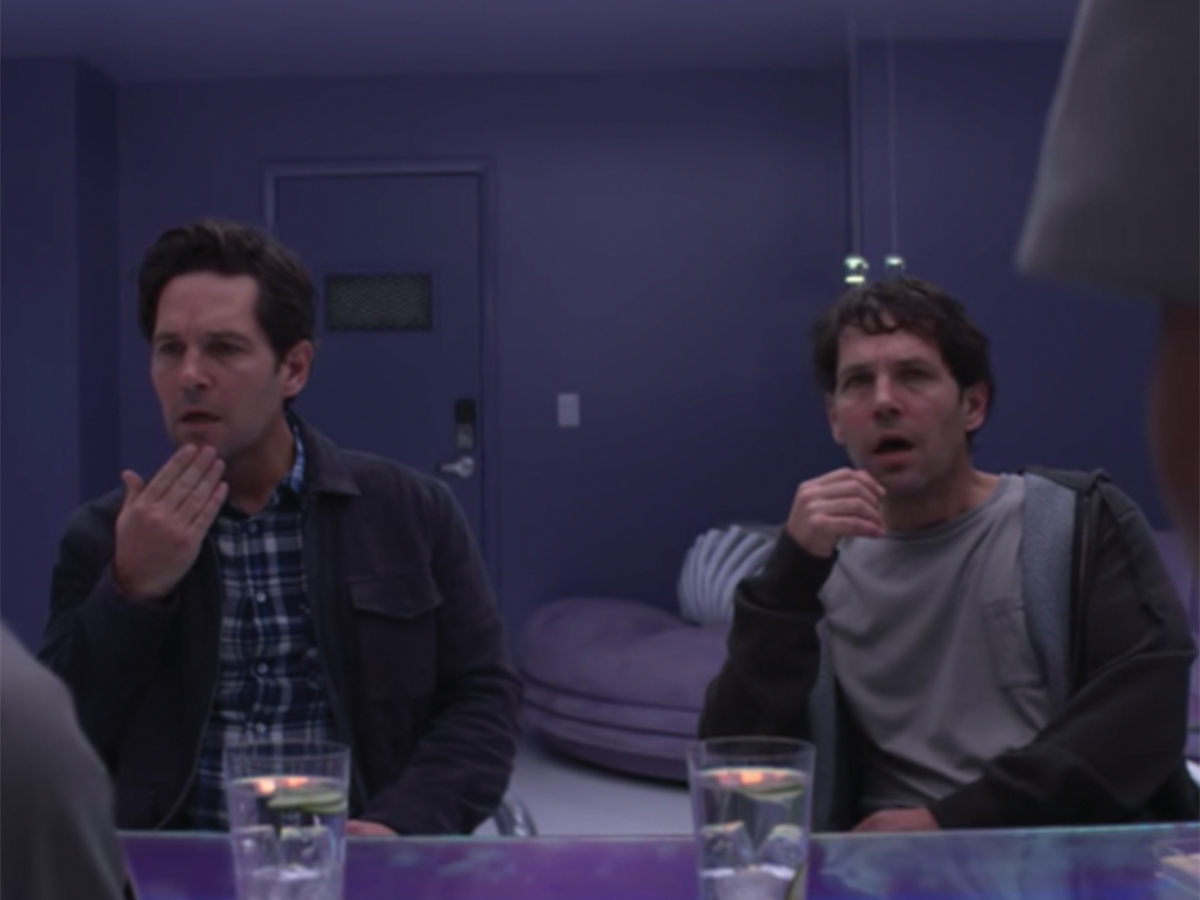
Let’s face it: life can be rough. Careers, relationships, school — it can all appear meaningless in a blink of an eye. Why is that? Paul Rudd’s character in Netflix’s “Living With Yourself” tackles this very issue — but in an unconventional way.
“Living With Yourself” focuses on Miles Elliot (Rudd), an employee at Pool Marketing who is unhappy in his work and personal life. A successful coworker tells him about Top Happy Spa, a mysterious spa run by two equally mysterious scientists, that will change him for the better. Desperate for a change, Miles gets the procedure done and he comes out feeling rejuvenated. When he returns home, his wife Kate (Aisling Bea) is surprised to see how bright he is. Miles had become a whole new person, but of course, everything is not what it seems. Miles discovers that the spa made a clone of him and planned on killing the sad, damaged version of himself. The series dives into how Miles deals with his relationship with his clone, and vice versa.
While “Living With Yourself” is advertised as a comedy, it is moreso a drama focused on inner crisis. There is something inherently sad about Miles’ life that most people can relate to. Miles was once an encouraging, fun-loving man that had a good relationship with his colleagues and family. Now, he struggles to find anything worth living for and only finds happiness when writing a play, rather than being with the people around him. Burnout is something that successful, hard working people deal with on an everyday basis, leading to mental disorders like depression. This is a common, yet powerful message to be shared with audiences. Sure, there are laughs to be had around the awkward dynamic between Miles and New Miles. However, “Living With Yourself” delves deep into what makes you unique and what makes you happy.
Each episode is structured in an interesting way. Initially, it takes on the perspective of Old Miles. Then, it shifts gears to see the show through the eyes of New Miles. This serves to reveal shocking discoveries and clear up any plot holes or inconsistencies in the episode. Interestingly enough, the switching of perspectives reveals that New Miles, despite being perfect in every sense on the outside, is actually very cold-hearted.
Rudd’s performance in “Living With Yourself” deserves to be praised. Old Miles bares such a huge difference to New Miles despite appearing and sounding similar. It’s the little things — the unkempt hair, the frown, even some gestures — that set him totally apart from New Miles. Rudd believably plays two contrasting characters so well that it’s difficult to tell that both Miles are played by the same actor. Bea’s performance evolves over the course of the season; she goes from being cold and distant to more accepting of New Miles. It’s apparent in the beginning of the series how her character refuses to embrace Miles but then grows closer and closer to him in other episodes. Rudd’s banter with Dan (Desmin Borges), his coworker turned enemy, is hilarious as well. The way Borges’ character transitions from looking down on Miles to being overly jealous and hateful when Miles suddenly becomes successful is representative of their whole relationship. There is a scene where Miles reveals he has a clone to his coworkers. Instead of being shocked, Dan chuckles and sips his drink, truly showcasing how his character wants to see Miles’ downfall. While her moments were brief, Miles’ eccentric younger sister Maia (Alia Shawkat) had some notable lines and words of advice to the struggling Miles. Her character was rather random with her appearance and lifestyle, but in a show about human cloning, she’s not totally out of place.
Creator and showrunner Timothy Greenberg’s approach with human cloning is definitely an interesting way to make a statement about burnout. It proposes a question: what if I could just start over? And if I can start over, what would happen if I was able to meet the better version of myself? Greenberg’s message serves to answer all these hypothetical questions in a creative way. While other shows use the old meeting your clone trope for a quick gag, “Living With Yourself” takes on a much more realistic and dramatic take. The aspect of human cloning does make the show more science fiction in nature, but Rudd’s performance gives it a sense of normalcy. By setting the series in a suburb, Greenberg tries to appeal his message to everyday people with everyday problems.
Initially, “Living With Yourself” seems like a fun dramedy about human cloning. However, it instead tackles many of life’s toughest issues and gives its own perspective for audiences to ponder. Yes, “Living With Yourself” is simply an eight episode series in which each episode spans about 30 minutes, but it has a lasting impact and makes for great entertainment. While there has not been an official consensus on a second season, the first season had its highlights with an interesting cast and creative storytelling.
VERDICT: “Living With Yourself” is a fun, emotional and honest portrayal of a midlife crisis that’s a solid watch and easy to binge. Rudd’s performance is not to be overshadowed as he is able to believably play two separate characters. Overall, “Living With Yourself” had a great start and is worth the watch.








